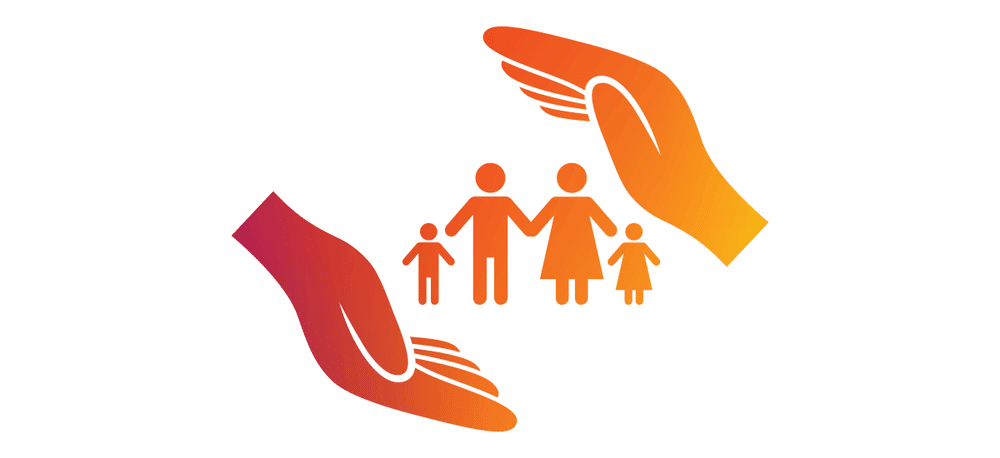Many Canadians wonder if their Health Spending Account (HSA) benefits can extend beyond themselves — and the good news is, they often can.
Can I use my HSA for other family members? This question is increasingly relevant as more individuals seek flexible and tax-efficient ways to manage healthcare expenses across their families. As healthcare costs continue to rise and public coverage varies, leveraging your HSA for your loved ones can be a smart move.
In this comprehensive guide, we’ll explore who counts as a dependent under CRA rules, how you can legally use your HSA for family members, and the practical benefits and limitations associated with doing so.
Understanding the scope of your HSA’s capabilities is critical, especially if you’re an incorporated business owner or a self-employed professional who benefits from tax-advantaged health accounts.
Whether you’re trying to cover dental, prescription, vision, or even more specialized medical expenses, knowing exactly who qualifies as a dependent and how to maximize your benefits can lead to significant savings. Let’s delve into the details to clarify all your questions about using your HSA for other family members in Canada.
Who Can You Use Your HSA For?

If you’re actively contributing to and utilizing a Health Spending Account (HSA) in Canada, you might wonder, can I use my HSA for other family members? The straightforward answer is yes, with some important considerations based on CRA rules and your specific circumstances.
Generally, your HSA can be used to reimburse eligible medical expenses not just for yourself, but also for certain family members. The scope of this coverage depends largely on your relationship with the individual and whether they qualify as a dependent under CRA guidelines. The key is understanding who counts as a dependent and what constitutes an eligible expense under the law.
The primary beneficiaries of your HSA coverage include your spouse and dependent children. In some cases, other dependents such as elderly parents or disabled relatives may also qualify.
However, it is essential to distinguish between the broader concept of medical expense coverage and the specific parameters set by CRA for dependents. This allows you to plan your healthcare reimbursements effectively, ensuring you’re compliant with tax laws while maximizing your benefits.
It’s equally important to note that the coverage limits and eligible expenses vary depending on the relationship, age, and dependency status of the family member. By understanding these distinctions, you can tailor your HSA usage and ensure that you are making the most of the available tax-efficient healthcare benefits for your loved ones.
The Basic Scope: Spouses and Dependent Children
The most common and straightforward use of your HSA involves your immediate family — specifically, your spouse and dependent children.
Spouses are typically defined as individuals legally married to you or those in a common-law partnership, and they are fully eligible to benefit from your HSA. This includes covering their medical expenses such as dental, vision, or prescriptions. The CRA does not impose age restrictions for spouses, meaning that even adult spouses can be included as long as the expenses are eligible and the account holder chooses to do so.
Dependent children are slightly more nuanced. Generally, these are children under 18 years of age, but there are exceptions. For example, children over 18 may qualify if they are full-time students or are otherwise dependent due to disability. The key consideration here is the financial dependency — if your child relies solely on you for support and is claimed as a dependent on your taxes, then their eligible medical expenses can typically be reimbursed from your HSA.
In practical terms, if you have children in university or college, and they meet the dependence criteria, you can use your HSA to cover their health expenses. This flexibility provides a valuable tax-free reimbursement mechanism, which can significantly reduce out-of-pocket costs for higher education healthcare needs or ongoing medical care.
Understanding these parameters helps you confidently plan how and when to utilize your HSA for your family members, ensuring compliance while optimizing your healthcare spending. It might also serve as a useful strategy to stretch your healthcare dollars further in an environment of increasing healthcare costs and limited public coverage.
CRA Rules for Dependents (Canada 2025)
Knowing who qualifies as a dependent under the Canada Revenue Agency (CRA) rules is fundamental to understanding can I use my HSA for other family members. The CRA’s definition of a dependent is broad but specific enough to inform your healthcare strategy and ensure adherence to tax regulations.
What does CRA consider a dependent?
The CRA defines dependents as individuals who rely on you for financial support and are related to you by blood, marriage, or adoption. This broad definition includes various family members, but the scope is precise when it comes to what expenses can be reimbursed tax-free from your HSA.
Generally, to qualify as a dependent under CRA, the individual must meet the following criteria: they are dependent on you financially because of age, disability, or relationship, and you claim them as a dependent on your tax return. This definition is crucial, as it influences what expenses can be reimbursed and whether your HSA can cover those costs without risking tax penalties.
Specific dependents approved under CRA rules
This category includes a spectrum of family members whose dependence on you makes their healthcare expenses eligible for tax-free reimbursement. The list is extensive but notable, including:
- Parents or grandparents living with you: If your elderly parents or grandparents reside in your home and you support them financially, their medical expenses are generally eligible.
- Disabled dependents of any age: If a family member with a disability depends on you financially, their healthcare costs can often be reimbursed from your HSA, regardless of age.
- Children under 25 enrolled full-time in school: As long as their expenses are related to full-time education and they rely on your support, their eligible medical expenses are covered.
The CRA’s rules prioritize financial dependence and relationship, which means that even extended family members like cousins or siblings do not automatically qualify unless they meet specific dependency criteria under the law.
Moreover, the CRA considers the specific circumstances surrounding each dependent — including whether they live with you, their age, and their disability status — to determine if their health expenses qualify for HSA reimbursement. For example, if your chronically disabled parent or grandparent depends on you for daily living and healthcare, you can use your HSA to cover their medical costs legally.
Understanding these dependence criteria is akin to having a clear map for using your HSA correctly. It ensures legality, maximizes your healthcare budget, and avoids potential tax penalties that could arise from improper claims. As a prudent taxpayer or business owner, aligning your reimbursements with CRA rules is essential for a seamless and beneficial healthcare strategy.
Examples of HSA Coverage for Family Members
Visualizing how your HSA can cover various family members’ expenses helps demystify the process and empowers you to make informed decisions. Below is a detailed table illustrating typical eligible expenses per family member and whether they qualify for HSA reimbursement.
| Family Member | Eligible Expenses (CRA-Approved) | Covered by HSA? |
| Spouse | Dental work, prescriptions, vision care, therapy sessions | ✅ Yes |
| Children under 18 | Braces, eye exams, mental health counseling | ✅ Yes |
| Children over 18 (full-time students) | Glasses, medical gadgets, therapy | ✅ Yes |
| Elderly Parent (dependent) | Prescription medications, mobility aids | ✅ If CRA-defined dependent |
| Siblings/Cousins | Personal expenses not dependent-related | ❌ No |
This table clarifies which expenses are common and allowable under CRA guidelines, giving you a framework to plan your healthcare reimbursements proactively.
Practical Examples and Insights
For instance, if your spouse requires dental crowns, your HSA can reimburse this expense tax-free. Similarly, your teenage child who needs glasses or a hearing aid covered under their medical plan qualifies, provided they’re dependent as per CRA rules.
Supplementary to this, elderly parents diagnosed with chronic illnesses can benefit significantly from HSA coverage, provided they meet dependence criteria. For example, a parent living with you, requiring ongoing prescription medication or mobility aids, can have these costs reimbursed through your HSA.
In contrast, expenses for relatives without dependency status or those living outside your household generally do not qualify unless specific circumstances (disability, legal dependency) apply. This clarity ensures you don’t inadvertently claim non-eligible expenses, preserving your compliance and tax benefits.
Understanding these nuances helps you strategize effectively for your family’s health needs. It guides an organized approach to financial planning, optimizing your HSA’s value while adhering strictly to CRA rules. Whether covering urgent dental work or ongoing prescriptions, knowing the eligible expenses can make your healthcare planning more efficient and cost-effective.
How HSA Reimbursement Works (Family Coverage)

The process of reimbursing family members’ healthcare expenses through your HSA can seem straightforward but warrants careful understanding to maximize benefits and avoid pitfalls.
The step-by-step reimbursement process
First, you need to pay the healthcare provider directly—for example, the dentist or optometrist. Keep all receipts and supporting documentation for the medical expense incurred. This documentation will be crucial when submitting your claim.
Next, you submit the receipts and any required forms through your HSA provider’s online portal or via email or mail, depending on their specific procedures. Many providers now offer streamlined, digital submission processes that expedite reimbursements and reduce paperwork.
Once your claim is reviewed and approved, you receive repayment — typically as a direct deposit into your linked bank account. The critical aspect here is that the reimbursement is tax-free, which means you do not incur income tax on the amount reimbursed, provided the expense is eligible under CRA guidelines.
The importance of tax treatment and compliance
Unlike traditional insurance payouts, HSA reimbursements for eligible expenses do not trigger any tax liability. They are considered a non-taxable distribution, which makes them a highly efficient way to manage healthcare costs. As long as the expenses are within the bounds of CRA’s approved list, the reimbursements are entirely tax-free.
However, it’s vital to keep meticulous records of all claims and supporting documentation. The CRA has the right to audit these reimbursements, and discrepancies or unsupported claims can lead to penalties or the reclassification of reimbursements as taxable income.
This process requires diligence but offers significant advantages: the ability to pay medical bills upfront, then receive reimbursements that are exempt from income tax. It turns a typically out-of-pocket expense into a tax-advantaged, streamlined transaction that benefits your family’s health budget.
Managing reimbursements for multiple family members
If you’re covering expenses for several family members, organizing your receipts and claims becomes even more essential. Many HSA providers allow you to submit multiple claims at once or maintain an online dashboard to track reimbursements. This flexibility helps in planning your claims strategically, especially around periodic health expenses like annual checkups or ongoing treatments.
Effectively managing these reimbursements involves understanding your HSA’s specific rules, staying compliant with CRA regulations, and maintaining thorough records. Proper administration ensures that your health benefits remain tax-free, maximizing your financial advantage and providing peace of mind in your healthcare planning.
Common Family Expenses Covered by HSA (Canada 2025)

Maximizing the value of your HSA involves understanding which family-related expenses it can cover. Given the broad list of CRA-approved medical costs, a wealth of service options is at your disposal for your loved ones.
- Dental braces for children: Orthodontic treatments often represent significant out-of-pocket costs but are fully reimbursable through your HSA if they meet CRA criteria.
- Glasses and contacts for spouse: Vision correction is a common expense, and HSA coverage applies to prescriptions, frames, and contact lenses.
- Counseling for dependents: Mental health and counseling sessions, especially during the past few years, have become more vital. Many of these services qualify, making your HSA an excellent resource for mental health care.
- Physiotherapy and chiropractic care for family members: These treatments for injuries or chronic conditions typically qualify for reimbursement, supporting ongoing health management.
- Prescription medications for spouse or children: As long as they are CRA-eligible medicines, prescriptions are a critical expense your HSA can help cover efficiently.
Additional considerations
It’s also important to remember that the list of CRA-approved expenses is comprehensive and includes specialized treatments such as speech therapy, hearing aids, acupuncture, and durable medical equipment. This broad spectrum allows families to use their HSA funds for a wide variety of healthcare needs without concern for taxes or limitations.
By proactively planning around these common expenses, you make your HSA a powerful tool for everyday health management. This not only reduces out-of-pocket costs but also enhances the overall benefit of your healthcare budget. Regularly reviewing the CRA’s current list of eligible expenses and aligning your family’s health needs with these categories can lead to more effective and tax-efficient expenditure.
FAQs
Can I use my HSA for my spouse’s dental work?
Yes, HSAs generally cover your spouse’s medical expenses, including dental work, as long as the expenses are CRA-eligible. This allows you to reimburse your spouse’s dental treatments tax-free through your HSA, provided you keep proper documentation and meet dependency criteria.
Can HSA cover dependents over 18?
Absolutely, if the dependents over 18 are full-time students or are classified as dependents due to disability. The key factor here is dependence—if they rely on you financially and qualify under CRA definitions, their health expenses are eligible for reimbursement.
Do I pay tax on HSA reimbursement?
No, HSA reimbursements for eligible expenses are completely tax-free in Canada. This is one of the key advantages of using an HSA over other health financing options, as it offers significant tax savings on medical costs.
Can I use my HSA for my parents’ medical expenses?
Yes, if your parents meet the CRA‘s definition of dependents — meaning they are financially dependent on you or live with you and rely on your support — then their medical expenses can be reimbursed tax-free from your HSA.
Why This Matters for Incorporated Business Owners
For business owners in Canada, particularly those incorporating their enterprises, HSAs present a strategic financial tool. Extending health benefits to your entire family can lead to substantial tax advantages and cost savings.
Tax-free benefits for the entire family
HSAs allow business owners to structure healthcare spending efficiently. Since reimbursements are tax-free, paying for family members’ medical expenses via your business’s HSA reduces tax liability while providing high-quality health coverage to loved ones.
Cost savings and tax deductions
Compared to paying out-of-pocket or through personal insurance, channeling healthcare expenses through your HSA can turn into a tax deduction at the corporate level. This approach maximizes your overall tax efficiency and reduces the economic burden of healthcare costs across your household.
Strategic planning and legal compliance
Incorporating family healthcare into your corporate benefits plan demonstrates proactive financial planning. Strict adherence to CRA rules protects you from penalties and ensures that all reimbursements remain compliant, making your business benefits more robust and sustainable.
This structure also enables you to set up ongoing health benefit plans tailored for your family, leading to predictable expenses, simplified management, and optimized tax benefits. For incorporated business owners aiming to streamline health benefits, utilizing an HSA for dependents can be a game-changer.
Conclusion
In summary, can I use my HSA for other family members? The answer is a resounding yes, provided the individuals meet the CRA’s criteria for dependency and the expenses are eligible under CRA guidelines. Your HSA serves as a flexible, tax-advantaged account that can be used to reimburse a variety of healthcare costs for your spouse, dependent children, and other dependents such as elderly parents with whom you share a financial dependency.
This guide has walked you through CRA rules, practical examples of eligible expenses, and clear reimbursement processes, emphasizing how vital it is to maintain proper documentation. For business owners, leveraging your HSA to extend benefits to your entire family can generate significant tax savings, turning healthcare spending into a strategic advantage.
If you’re looking to maximize your healthcare budget and reduce costs while ensuring your loved ones receive quality care, now is the time to evaluate your HSA’s potential. Want to see how much you could save by covering your family? Connect with Wellbytes for a free savings estimate today, and start turning your health benefits into your most valuable financial asset.
